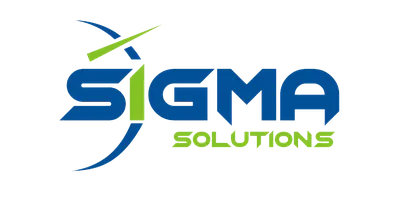In today’s fast-paced global economy, efficiency and cost-effectiveness are paramount for businesses to thrive. Indian Micro, Small, and Medium Enterprises (MSMEs) are the backbone of the nation’s manufacturing prowess, and to ensure their continued growth and global competitiveness, the Ministry of MSME has spearheaded the MSME Competitive (Lean) Scheme.
This flagship initiative provides structured support for MSMEs to adopt Lean Manufacturing Tools and Techniques, such as Kaizen, 5S, Kanban, Total Productive Maintenance (TPM), and more. With increasing competition and resource constraints, optimizing processes and minimizing waste are no longer optional but essential. This scheme is the government’s strategic push to help MSMEs transform into smarter, more agile, and globally competitive entities, aligning with the “Make in India” and “Atmanirbhar Bharat” vision.
Table of Contents
- What is the MSME Competitive (Lean) Scheme?
- Key Objectives: Why Lean Matters for MSMEs
- Who Can Benefit? Eligibility & Covered Sectors
- Lean Techniques: Tools for Transformation
- Financial Assistance: Making Lean Affordable
- Application & Implementation Process
- Tangible Benefits of Lean Practices for MSMEs
- Common Mistakes to Avoid
- FAQs
- How Sigma Solutions Can Help You
- Conclusion
What is the MSME Competitive (Lean) Scheme?
The MSME Competitive (Lean) Scheme (often referred to simply as the Lean Scheme) is designed to support micro, small, and medium enterprises in adopting Lean Manufacturing practices. These practices are a proven methodology to significantly improve productivity, enhance quality, and boost overall operational efficiency.
The scheme facilitates this transformation primarily through cluster-based implementation. This means MSMEs come together, and with the expert guidance of empaneled Consulting Organizations (COs), they are hand-held through the entire Lean adoption journey. This collaborative approach ensures shared learning and optimized resource utilization within industrial ecosystems.
Key Objectives: Why Lean Matters for MSMEs
The Lean Scheme operates with clear, impactful objectives:
- Minimize Waste: Systematically identify and eliminate all forms of waste and non-value-added activities in production processes.
- Improve Quality & Safety: Enhance product quality, reduce defects, and create a safer, more organized workplace.
- Reduce Costs: Drastically cut down on lead time, inventory costs, and the overall cost of production.
- Boost Productivity: Optimize resource utilization, including manpower and machinery, to achieve higher output with fewer inputs.
- Foster Competitiveness: Build long-term operational resilience and competitiveness for Indian MSMEs in both domestic and international markets.
- Promote Industry 4.0 & Digital Empowerment: Encourage awareness and adoption of modern manufacturing technologies and digital tools.
Who Can Benefit? Eligibility & Covered Sectors
The scheme is designed for a wide range of enterprises keen on operational excellence:
- All MSMEs with Valid Udyam Registration: This is a mandatory prerequisite for participation.
- Manufacturing and Service Sector Enterprises: The scheme is open to both manufacturing and service-oriented MSMEs whose operations can benefit from Lean tools.
- MSME Clusters, Industry Associations, or Special Purpose Vehicles (SPVs): The scheme is primarily cluster-driven, meaning individual units typically join or form a cluster to apply. Industry associations and OEMs are encouraged to motivate their supply chain vendors to participate.
- Common Facility Centers (CFCs): CFCs under schemes like SFURTI (Scheme of Fund for Regeneration of Traditional Industries) and MSE-CDP (Micro & Small Enterprises – Cluster Development Program) are also eligible.
Lean Techniques: Tools for Transformation
The scheme supports the implementation of a wide array of globally recognized Lean tools and techniques, including:
- 5S (Sort, Set in Order, Shine, Standardize, Sustain): A foundational methodology for workplace organization and standardization.
- Visual Management: Using visual aids to make information easily accessible and understandable.
- Kaizen (Continuous Improvement): A philosophy focused on small, incremental improvements on an ongoing basis.
- TPM (Total Productive Maintenance): Aiming for perfect production by eliminating all breakdowns, defects, and accidents.
- Kanban and Pull Systems: Inventory management systems that pull production based on actual demand, reducing overproduction.
- Value Stream Mapping (VSM): A tool to visualize and analyze the flow of materials and information required to bring a product or service to a customer.
- Quality Circles: Groups of employees who meet regularly to solve problems and improve processes.
- Root Cause Analysis: Methods used to identify the underlying causes of problems to prevent recurrence.
Financial Assistance: Making Lean Affordable
The MSME Competitive (Lean) Scheme significantly subsidizes the cost of implementing Lean practices:
| Activity | Government Support |
| Lean Implementation | Up to 90% of the consulting fees for MSMEs, including additional contributions for: • 5% additional for MSMEs owned by Women/SC/ST entrepreneurs or located in NER/Himalayan/LWE/Island territories/aspirational districts. • 5% additional for MSMEs registering through Industry Associations/OEMs after completing all levels. |
| Awareness & Sensitization | Support for organizing nation-wide awareness programs, workshops, and cluster meets. |
| Handholding via COs | Full subsidy for initial diagnostic studies and preparation of action plans. |
| Incentives for ZED-certified units | MSMEs that achieve ZED (Zero Defect Zero Effect) certification may receive higher subsidies or benefits when participating in the Lean Scheme. The scheme also offers benefits like exemption in ZED parameters and subsidies linked with the MSME Digital Scheme upon completion. |
Note: The remaining cost (typically 10% for most MSMEs) is borne by the MSME cluster or association.
Application & Implementation Process
The journey to Lean excellence through this scheme involves a structured approach:
- Cluster Formation: MSMEs typically form a cluster (a Group of Enterprises – GoE) or join an existing one. Heterogeneous MSME units can form a group, and SPVs are not always required (unlike in previous schemes).
- Application Submission: Submit your application through the official MSME Lean portal (lean.msme.gov.in) or via the District Industry Centre (DIC). This involves Udyam Registration verification and taking the Lean Pledge.
- Engage Consulting Organization (CO): An empaneled Consulting Organization (CO) is allocated to the cluster by the implementing agency (e.g., QCI, NPC) through a pre-defined selection process based on technical and financial bidding.
- Diagnostic Study & Action Plan: The CO conducts a diagnostic study of the MSMEs within the cluster and prepares a detailed Lean action plan.
- Phased Implementation: Lean implementation occurs in phases:
- Level 1: Basic (approx. 2 months): Focus on awareness and initial implementation (e.g., E-modules, online exams).
- Level 2: Intermediate (approx. 6 months): Involves significant onsite handholding and implementation of core Lean tools.
- Level 3: Advanced (approx. 12 months): Deeper integration of Lean principles and continuous improvement.
- Monitoring & Assessment: Progress is continuously monitored and results are assessed by nodal agencies, DICs, and Ministry-appointed officials. Funding is disbursed in tranches upon milestone completion and performance review.
Tangible Benefits of Lean Practices for MSMEs
Adopting Lean practices through this scheme offers a multitude of benefits:
- Enhanced Operational Efficiency: Streamlined processes lead to better utilization of all resources.
- Reduced Production Costs & Cycle Time: Eliminating waste directly translates to lower costs and faster delivery.
- Improved Quality & Customer Satisfaction: Fewer defects, better processes, and quicker delivery enhance product quality and customer loyalty.
- Optimized Resource Utilization: Better use of manpower, machines, and space.
- Workplace Standardization & Safety: Organized environments lead to safer and more consistent operations.
- Higher Profitability: The cumulative effect of reduced costs, improved quality, and increased efficiency leads to higher profits.
- Increased Competitiveness: Enables MSMEs to compete effectively with larger domestic and international players.
- Culture of Continuous Improvement: Instills a mindset of ongoing optimization and problem-solving.
Common Mistakes to Avoid
To make the most of the Lean Scheme, be mindful of these common errors:
- Lacking Valid Udyam Registration: Ensure your Udyam Registration is complete and active before applying.
- Choosing Non-Empaneled Consultants: Only consultants empaneled by the implementing agencies are approved under the scheme.
- Insufficient Cluster Commitment: All members of a cluster must be committed to the Lean transformation for successful implementation.
- Incomplete Documentation: Pay close attention to all required paperwork for application and reimbursement.
- Lack of Internal Lean Team: While COs provide handholding, having a dedicated internal team to champion Lean activities is crucial for sustained impact.
- Ignoring Digital Platform: Utilize the dedicated online portal for registration and tracking progress.
FAQs
Here are some common questions about the MSME Competitive (Lean) Scheme:
Q1. Can a single MSME apply for the scheme, or is it only for clusters?
The scheme primarily focuses on cluster-based implementation. Individual units may join existing clusters or form a new Group of Enterprises (GoE) to become eligible.
Q2. What is the typical duration for Lean implementation under the scheme?
The duration varies by level: Basic (approx. 2 months), Intermediate (approx. 6 months), and Advanced (approx. 12 months for full implementation), depending on the depth of intervention.
Q3. Who monitors the progress of Lean implementation?
Progress is monitored by nodal agencies like QCI and NPC, District Industry Centres (DICs), and Ministry-appointed officials.
Q4. Are service sector enterprises eligible for the scheme?
Yes, service sector enterprises are eligible if their operations can demonstrably benefit from the application of Lean tools and techniques.
Q5. How is the financial assistance disbursed?
Funding is typically disbursed in tranches to the Consulting Organization (CO) upon the completion of specific milestones and positive performance reviews.
Q6. What is the benefit of ZED certification under this scheme?
MSMEs with ZED certification may receive additional subsidies or benefits under the Lean Scheme. The scheme also offers benefits in ZED parameters and linkage with the MSME Digital Scheme upon successful completion.
How Sigma Solutions Can Help You
Sigma Solutions is dedicated to empowering MSMEs in Itanagar, Arunachal Pradesh, and across India to leverage this transformative scheme. We offer end-to-end support to simplify your Lean journey:
- Cluster Formation & SPV Creation: Assistance in forming committed MSME clusters or SPVs.
- Proposal Preparation & Submission: Expert guidance in preparing and submitting robust applications via the Lean portal.
- Coordination with Empaneled COs: We help you identify and effectively coordinate with empaneled Consulting Organizations.
- Documentation & Compliance: Comprehensive support for all necessary documentation, reporting, and compliance requirements.
- Implementation Monitoring & Impact Assessment: Guidance in monitoring your Lean implementation and assessing its tangible impact on your business.
Conclusion
The MSME Competitive (Lean) Scheme 2025 is a game-changer for Indian MSMEs striving to upgrade their operations without heavy initial investments. By embracing a culture of continuous improvement, MSMEs can effectively cut waste, enhance output, improve quality, and significantly boost their global competitiveness.
With Sigma Solutions as your trusted Lean transformation partner, you can simplify the adoption process, maximize the impact of these powerful techniques, and scale your business with confidence towards a future of efficiency and sustained growth. Are you ready to make your MSME truly competitive?






